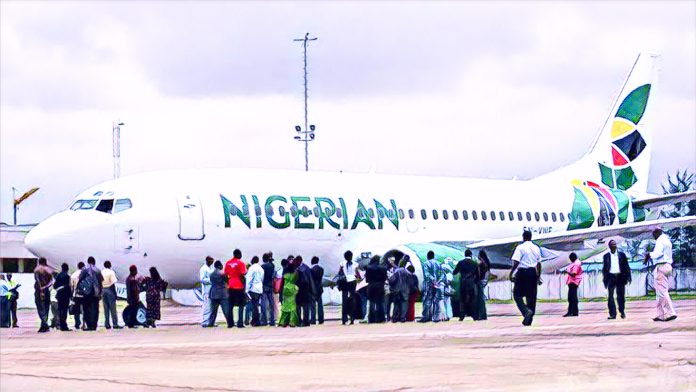Nigeria’s government has announced plans to digitize the processes for international air travelers in a bid to improve the ease of doing business and enhance security in the country. The Minister of Interior, Olubunmi Tunji-Ojo, said on Thursday that the new digital system will include an e-gate technique, processing, and an advanced passenger information system, effective December 2023.
The minister made the announcement at a BusinessDay breakfast meeting in Abuja, where he discussed the government’s efforts to catalyze funding for high-impact social projects. He said the digitization of air travel processes would reduce the inconvenience and delays faced by travelers at the airports and facilitate the detection and prevention of irregular entry of non-national and unregulated goods into the country.
According to Tunji-Ojo, the government has already cleared all the 204,332 passport backlog on his directive as part of its commitment to improving the country’s ranking on the ease of doing business index. He said by December this year, passport applicants can apply online, upload their documents and photographs, and only go to the office for biometric capture. By February 2023, he added, travelers will not need to return to the passport offices to collect their passports; they will be delivered to their houses.
The minister also said that by February 2023, the government will deploy smart kits and e-gates in the airports for seamless immigration service. He said travelers can scan their passports with their fingerprints and enter the country without facing immigration drilling. He said the government would also implement an advanced passenger information system, allowing the immigration service to have prior records and profiling of travelers before they arrive in the country.
Tunji-Ojo said the reforms will also include intensified plans to mitigate the challenge of internal security through border control, as a country that cannot evaluate the inflow and outflow of people is prone to insecurity. He said a safe border is a safe nation, calling for more attention to border communities and identity management systems.
The minister said there is a need for an ethical standard for public service delivery, transparency, and accountability in governance. He said the government is working with various stakeholders to ensure the safety and benefits of Nigerians.
The BusinessDay breakfast meeting was attended by representatives from different sectors, including academia, security, diplomacy, international organizations, civil society organizations, and media.
Source: BusinessDay



